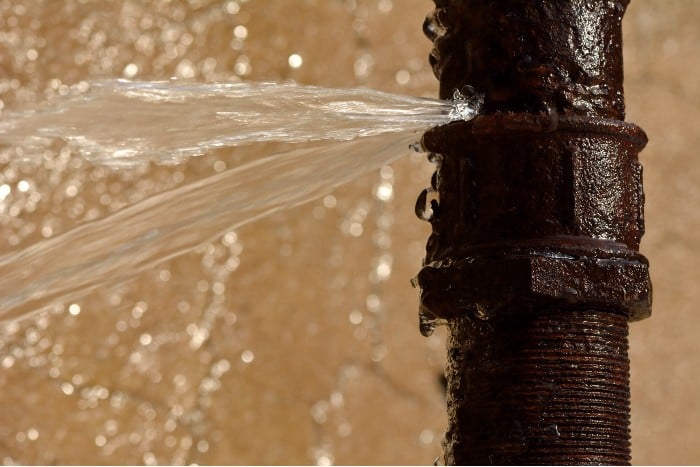Have you been in search of information and facts about How to detect water leaks in your home?

Leakages not only trigger waste of water but can also trigger unneeded damages to your residence and also advertise undesirable organic growth. By comprehending and looking for everyday scenarios that create leaks, you can secure your home from future leakages and also unnecessary damage.
Elbowing in origins
The majority of water leaks begin outside the residence rather than inside it. You could observe wet spots or sinkholes in your lawn, as well as that might indicate that tree origins are attacking water lines creating water to leak out.
Corroded water systems
This might be the reason of discoloration or bending on your water pipes. If our plumbing system is old, consider replacing the pipes given that they are at a higher threat of corrosion than the more recent models.
Defective Pipeline Joints
The factor at which your pipes connect is regularly the weakest link in the waterline. Pipeline joints can degrade gradually, causing water leakages. Regrettably, most of pipeline joints are not quickly noticeable. If you have loud pipes that make ticking or banging noises, especially when the hot water is switched on, your pipe joints are possibly under a great deal of pressure. It is a good idea to have your plumber inspect your system once a year.
Instant temperature level adjustments.
Extreme temperature adjustments in our pipelines can cause them to increase as well as contract unexpectedly. This development and tightening may cause fractures in the pipes, specifically if the temperature level are below cold.
Poor Water Connectors
At times, a leakage can be triggered by loosened hose pipes as well as pipes that provide your appliances. More often than not, changing is what causes the loosened water Connections. You could discover when it comes to a washing equipment, a pipe might spring a leak due to drinking during the spin cycle. In case of a water links leakage, you may see water running directly from the supply line or pools around your home appliances.
Obstructed Drains
Clogged drains could be bothersome and also inconveniencing, but they can often wind up triggering an overflow bring about burst pipes. Maintain getting rid of any materials that might decrease your drains pipes that might block them to stay clear of such troubles.
All the above are sources of leaks but not all water leaks result from plumbing leaks; some leaks could originate from roofing system leakages. All leaks ought to be repaired right away to stay clear of water damages.
Leakages not just trigger waste of water but can additionally create unnecessary damage to your residence and promote unwanted organic growth. By looking and also understanding for daily circumstances that create leakages, you can shield your residence from future leakages and also unnecessary damage. Today, we will look at six leak triggers that may be triggering your pipes to trickle.
At times, a leakage can be created by loosened tubes and pipes that provide your devices. In instance of a water links leak, you may discover water running directly from the supply line or puddles around your appliances.
How To Check For Water Leak In Your Home
How To Check for Leaks
The average household's leaks can account for nearly 10,000 gallons of water wasted every year and ten percent of homes have leaks that waste 90 gallons or more per day. Common types of leaks found in the home are worn toilet flappers, dripping faucets, and other leaking valves. These types of leaks are often easy to fix, requiring only a few tools and hardware that can pay for themselves in water savings. Fixing easily corrected household water leaks can save homeowners about 10 percent on their water bills.
To check for leaks in your home, you first need to determine whether you're wasting water and then identify the source of the leak. Here are some tips for finding leaks:
Take a look at your water usage during a colder month, such as January or February. If a family of four exceeds 12,000 gallons per month, there are serious leaks.
Check your water meter before and after a two-hour period when no water is being used. If the meter changes at all, you probably have a leak.
Identify toilet leaks by placing a drop of food coloring in the toilet tank. If any color shows up in the bowl after 10 minutes, you have a leak. (Be sure to flush immediately after the experiment to avoid staining the tank.)
Examine faucet gaskets and pipe fittings for any water on the outside of the pipe to check for surface leaks.
Undetected water leaks can happen without the home or business owner even realizing. If you suspect a water leak, but not able to find the source. It is time to contact a professional water leak detection service, The Leak Doctor.
How To Find a Water Leak In Your Home
https://www.leakdoctor.com/blog/How-To-Check-For-Water-Leak-In-Your-Home_AE197.html

We were introduced to that editorial on How to Find Water Leaks through an associate on a different web property. Enjoyed reading our posting? Please share it. Help other people find it. Thanks for your time. Visit us again soon.
Find Out More